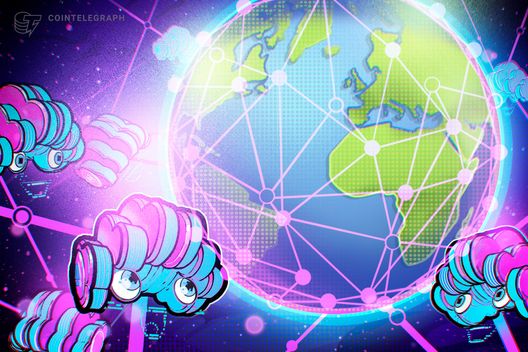
Opinion by: Matt Wright, co-founder and chief govt officer of Gaia
Within the mid-1400s, Gutenberg’s press eliminated the monopoly on written data. Literacy expanded, establishments modified and the general public lastly gained entry to concepts locked behind elite management.
In the present day, decentralized synthetic intelligence (DeAI) triggers an analogous shift by increasing entry to intelligence and reshaping who will get to construct with it.
The decentralization of AI challenges the prevailing construction of AI immediately. Most platforms function as closed methods. Mannequin weights are hidden, knowledge pipelines are proprietary and decision-making occurs behind APIs. That management has enabled a small variety of firms to find out how intelligence evolves and who can use it.
DeAI reduces that dependency and modifications how intelligence is created, ruled and distributed.
The hidden prices of closed AI platforms
The closed nature of centralized AI methods creates bottlenecks on account of restricted entry, which, in flip, results in a slim worldview. In documented circumstances, centralized expertise has produced biased choices, opaque outcomes and even wrongful arrests. These dangers stem from centralized management over inputs, design and knowledge.
Even the targets of central AI firms are evolving beneath strain. In 2025, OpenAI scrapped plans to become a fully for-profit entity and restructured its business arm right into a public profit company managed by its nonprofit mother or father. Whereas the transfer signaled that public curiosity stays a precedence, it additionally revealed how fragile that dedication may be when tied to company governance.
DeAI removes that dependency totally. It embeds public profit into the structure by engineering it into how the system works.
DeAI is already reworking communities and markets
DeAI builders can run fashions regionally, fine-tune them on regional knowledge, and adapt them to particular constraints. The instruments don’t rely on bandwidth, business licenses or company approval. They function the place centralized instruments typically can not.
Farmers in India use voice assistants educated in native dialects to plan crop cycles. In Sierra Leone, lecturers use AI chatbots through low-data messaging apps to get real-time lesson help that’s extra correct and cost-effective than conventional net search. In rural Guatemala, midwives use an AI-powered smartphone utility to observe fetal well being throughout dwelling visits, enabling real-time assessments with out web entry and bettering maternal care in low-resource settings.
All of those tasks are created by the human beings utilizing them — individuals who have traditionally been neglected of world tech improvement.
Constructing an AI agent is now simpler than ever. Tutorials present how anybody can create practical AI brokers with out coding. For extra technical customers, platforms provide code-based and visible improvement instruments. The obstacles to entry are considerably low.
Associated: Centralized AI threatens a democratic digital future
Companies are additionally following go well with. Retailers practice small fashions on transaction knowledge to enhance logistics. Enterprises customise open-weight fashions for inner operations. In accordance with DappRadar, decentralized AI functions are gaining market share quickly sufficient to doubtlessly problem DeFi and gaming in Web3.
DeAI is already reshaping how folks work, study and resolve issues of their communities. With each implementation, intelligence turns into much less summary, extra relevant, extra located and extra native.
A brand new ideological divide in AI
The most typical critique of DeAI is that decentralization results in inconsistency or misinformation. These considerations aren’t new. When Gutenberg’s press appeared, critics warned of unverified texts and social dysfunction. The long-term end result, nonetheless, was scientific progress, literacy and broader participation in public discourse.
Clear methods help oversight. Open fashions may be inspected. Neighborhood norms can govern native implementations. Moral controls can evolve within the open quite than being dictated by a single set of company values.
This divergence displays a broader ideological cut up within the AI group. Dario Amodei, CEO of Anthropic, has championed a safety-focused, centralized strategy as outlined in his essay, “Machines of Loving Grace.” He argues that accountable AGI requires tightly managed improvement.
Alternatively, Ben Goertzel, founding father of SingularityNET, has warned that centralized AGI improvement dangers reinforcing the slim worldviews of its creators. In a latest interview, he referred to as for intelligence to emerge from world collaboration and native adaptation.
These positions affect incentives, threat fashions and world entry. Centralized methods prioritize uniformity and management. Decentralized methods permit intelligence to evolve inside numerous cultures, industries and use circumstances. That flexibility is already shaping new markets and new establishments.
DeAI revives the ethos of the unique Renaissance
The subsequent section of AI will likely be outlined by who will get to take part. The extra intelligence strikes into public palms, the extra sturdy, adaptable and consultant it turns into. Builders are shifting away from closed APIs, public establishments are investing in sovereign infrastructure, and community-built fashions seem in locations with restricted attain of Large Tech instruments. Intelligence is not constructed just for the world — it’s constructed by it.
We’re nonetheless early on this transition, and what comes subsequent is determined by what we construct. Which means investing in decentralized infrastructure, funding native tasks and, above all, creating the instruments to form intelligence as accessible because the instruments to learn and write.
The primary Renaissance expanded who may learn. This one will develop who will get to suppose, compute and construct — all over the place.
Opinion by: Matt Wright, co-founder and chief govt officer of Gaia.
This text is for normal data functions and isn’t meant to be and shouldn’t be taken as authorized or funding recommendation. The views, ideas, and opinions expressed listed here are the writer’s alone and don’t essentially mirror or characterize the views and opinions of Cointelegraph.




























